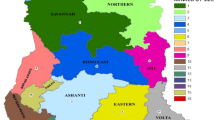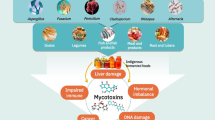Abstract
Varagu (Tamil), kodo, kodaka (Hindustani), Paspalum scrobiculatum (Linn.), is a millet largely used by the working and poorer classes of people in all parts of India as a staple article of food. More than 300,000 tons of this millet is produced in the Madras Presidency alone. In 1946, when rice was rationed and millet eaters were compulsorily asked to take a portion of their requirements in rice and millets in the form of varagu, complaints were received that consumers in several parts of the Presidency developed symptoms of food poisoning as a result of eating varagu in the cooked as well as the raw state. The symptoms observed within twenty minutes of taking the food were tremors, giddiness, perspiration, inability to speak or swallow. There were no fatalities, and the symptoms disappeared after twenty-four hours, though the persons affected had to be taken to hospital for treatment.
This is a preview of subscription content, access via your institution
Access options
Subscribe to this journal
Receive 51 print issues and online access
$199.00 per year
only $3.90 per issue
Buy this article
- Purchase on Springer Link
- Instant access to full article PDF
Prices may be subject to local taxes which are calculated during checkout
Similar content being viewed by others
Author information
Authors and Affiliations
Rights and permissions
About this article
Cite this article
AYYAR, K., NARAYANASWAMY, K. Varagu Poisoning. Nature 163, 912–913 (1949). https://doi.org/10.1038/163912b0
Issue Date:
DOI: https://doi.org/10.1038/163912b0
This article is cited by
Comments
By submitting a comment you agree to abide by our Terms and Community Guidelines. If you find something abusive or that does not comply with our terms or guidelines please flag it as inappropriate.



